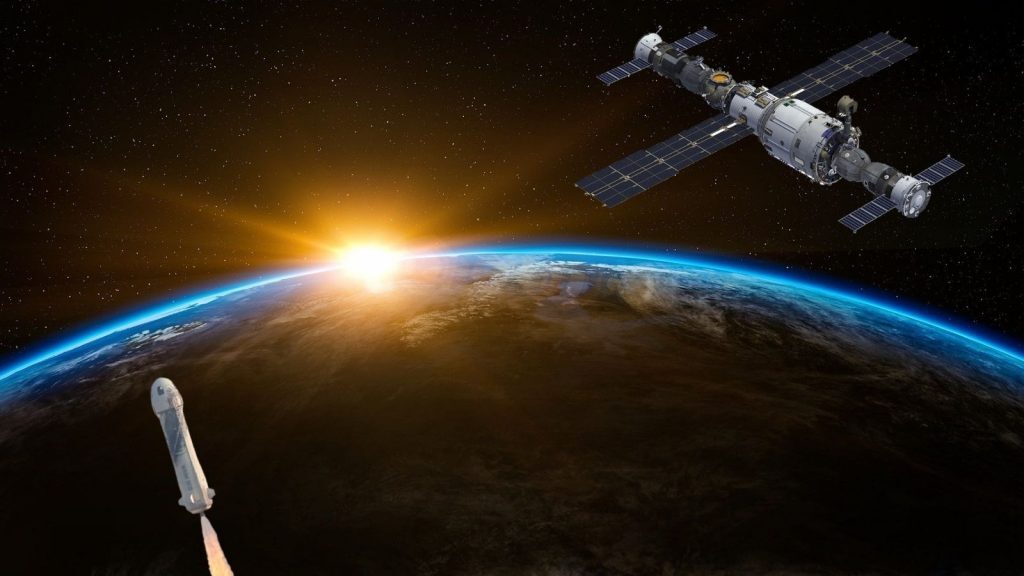Last week, two noteworthy events occurred in and around space travel. First, Jeff Bezos offered to give NASA $2 billion if they’d let Blue Origin construct the Artemis lunar lander, a contract originally awarded to SpaceX. Second, the International Space Station (ISS) was tipped out of orientation by a misfiring thruster from its new Russian module.
We’ve got updates on both of those events: The follow-up to Bezos’ offer and the reason why the ISS was knocked a little off course for a bit.
Blue Origin must be feeling blue
Jeff Bezos’ appeal to NASA to be awarded SpaceX’s Artemis contract is officially the only way that Blue Origin will wind up making a new lunar lander (barring a sudden cash injection allowing the company to build a redundant system). Bezos had lodged an appeal with the US Government Accountability Office (GOA), claiming that NASA’s reasoning for awarding to contract to SpaceX was flawed.
That appeal was denied over the weekend, as well as a similar appeal by another SpaceX competitor Dynetics, the Blue Origin argument hinged around the fact that NASA was initially supposed to appoint two companies to create a lunar landing system, later changing that to a single company — SpaceX — due to insufficient funding. Bezos’ company still isn’t happy, and will continue to lobby to create a second lunar landing system.
Software shifted the ISS
Russian space agency Roscosmos has completed its investigation into why the thruster for its new Nauka laboratory activated last week, tipping the International Space Station out of orientation. In a statement Vladimir Solovyov, the ISS’s Russian flight director, said “Due to a short-term software failure, a direct command was mistakenly implemented to turn on the module’s engines for withdrawal, which led to some modification of the orientation of the complex as a whole.”
The rest of the statement gives an entire rundown of what led up to the event as well as how it was compensated for and corrected. At present, the situation with the space station is supposedly normal, with preparation underway to bring the Nauka laboratory module into operation.




